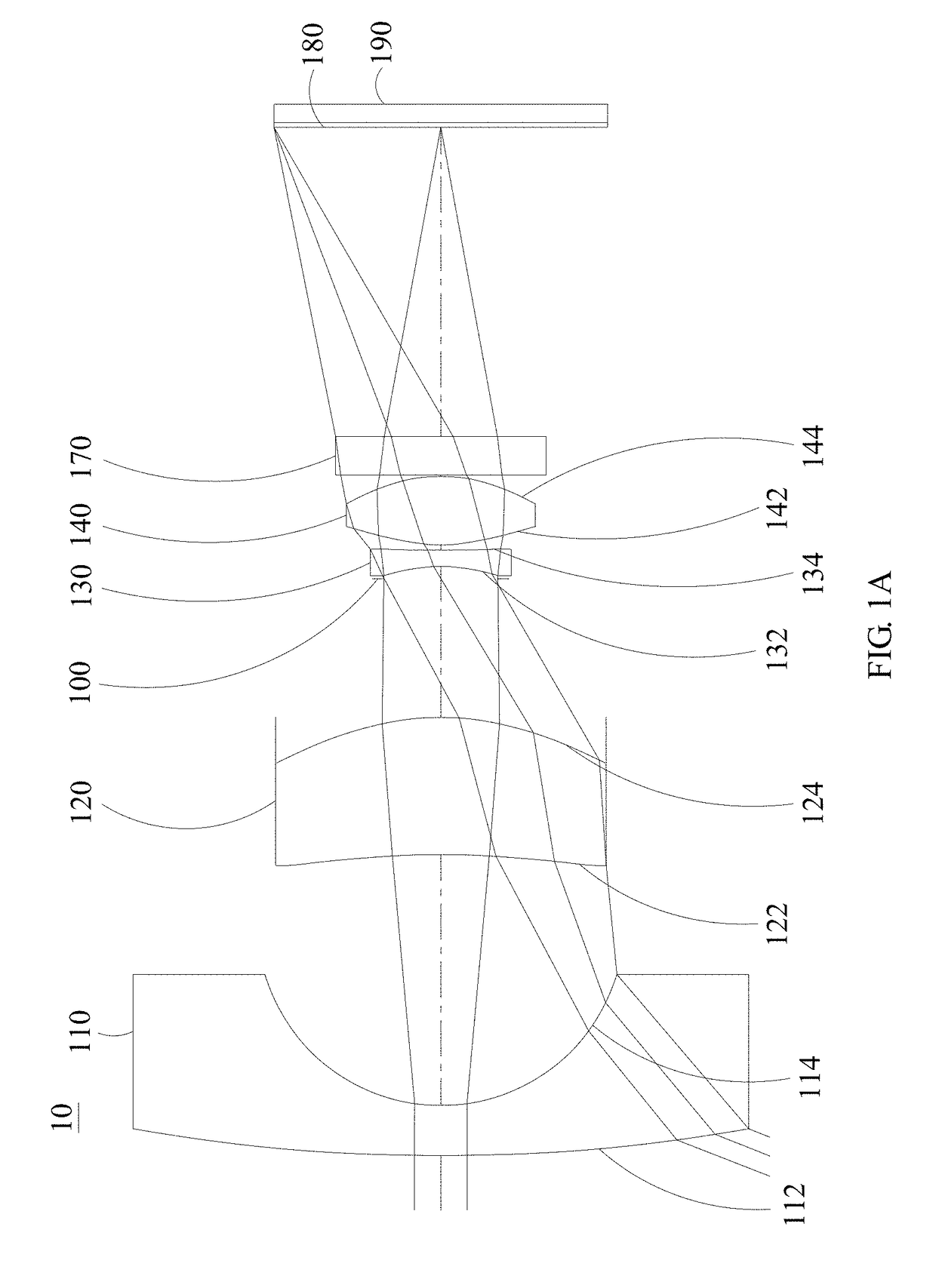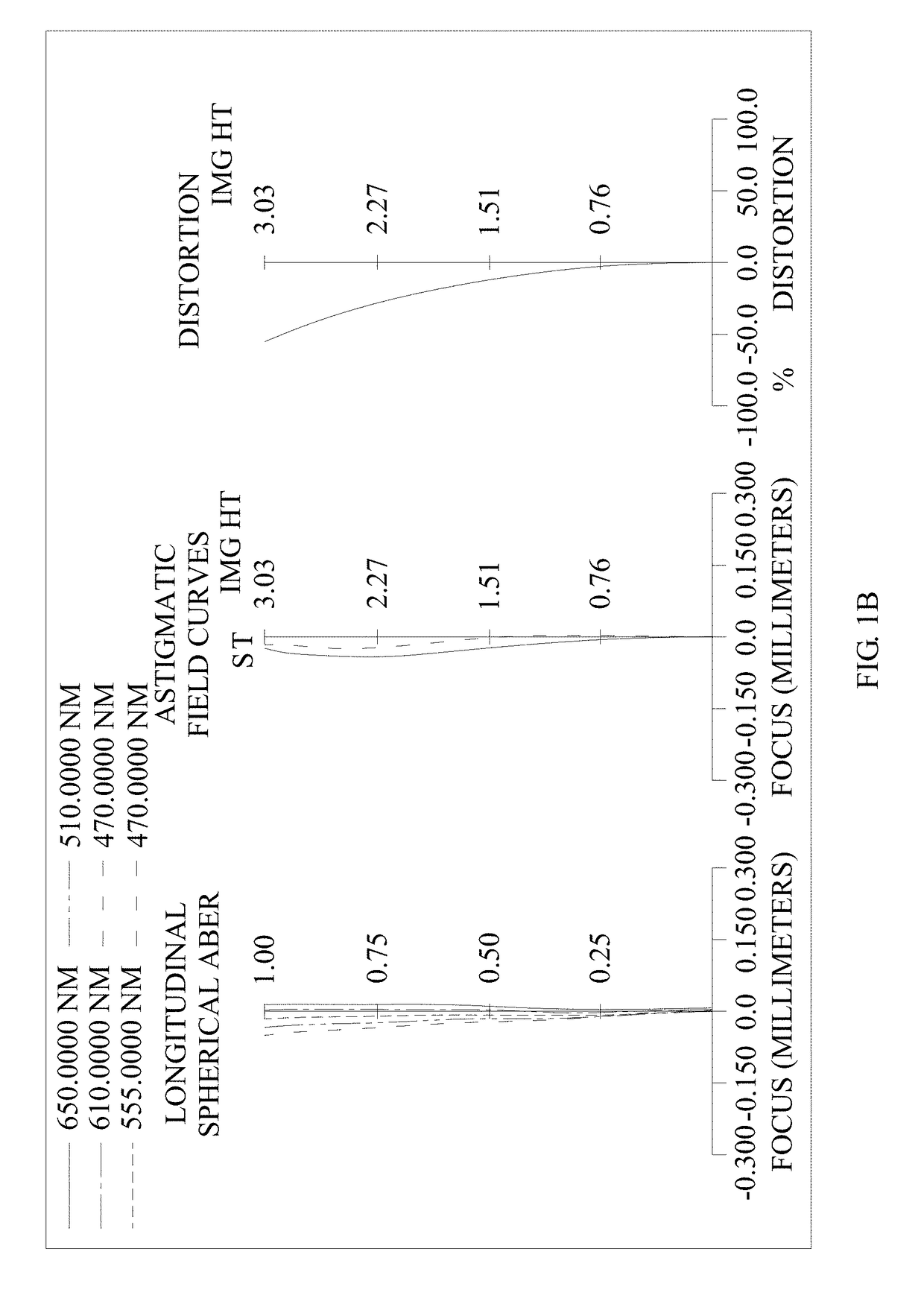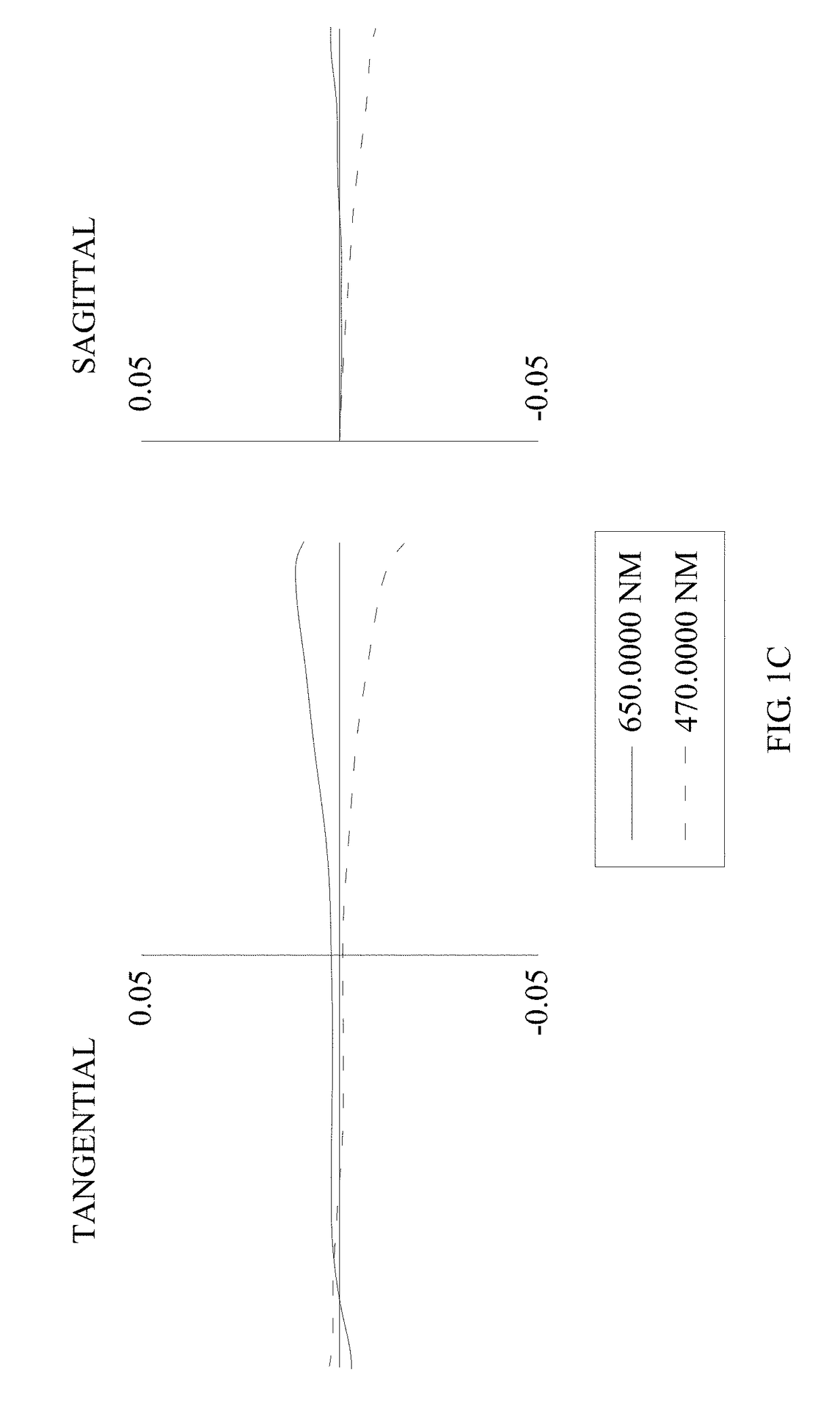Optical image capturing system having four-piece optical lens
a technology of optical lens and optical image, applied in the field of compact, can solve the problems of occupying a large space, affecting the design and manufacture of miniaturized surveillance cameras in the future, and high cost, so as to reduce the height of the optical system, reduce the incident angle of off-axis rays, and improve the image quality
- Summary
- Abstract
- Description
- Claims
- Application Information
AI Technical Summary
Benefits of technology
Problems solved by technology
Method used
Image
Examples
first embodiment
The First Embodiment
[0118]Please refer to FIGS. 1A to 1E. FIG. 1A is a schematic view of the optical image capturing system according to the first embodiment of the present disclosure. FIG. 1B shows the longitudinal spherical aberration curves, astigmatic field curves, and optical distortion curve of the optical image capturing system in the order from left to right according to the first embodiment of the present disclosure. FIG. 1C is a transverse aberration diagram of the longest operation wavelength and the shortest operation wavelength for tangential fan and sagittal fan, and the longest operation wavelength and the shortest operation wavelength pass through an edge of the entrance pupil and incident at the position of 0.7 HOI on the image plane according to the first embodiment of the present disclosure. FIG. 1D is a diagram showing the through-focus MTF values of the visible light spectrum at the central field of view, 0.3 field of view, and 0.7 field of view of the first emb...
second embodiment
[0166]Please refer to FIGS. 2A to 2E. FIG. 2A is a schematic view of the optical image capturing system according to the second embodiment of the present disclosure. FIG. 2B shows the longitudinal spherical aberration curves, astigmatic field curves, and optical distortion curve of the optical image capturing system of the second embodiment, in the order from left to right. FIG. 2C is a transverse aberration diagram of the longest operation wavelength and the shortest operation wavelength for tangential fan and sagittal fan, and the longest operation wavelength and the shortest operation wavelength pass through an edge of the aperture stop and incident at the position of 0.7 HOI on the image plane, according to optical image capturing system of the second embodiment. FIG. 2D is a diagram showing the through-focus MTF values of the visible light spectrum at the central field of view, 0.3 field of view, and 0.7 field of view of the second embodiment of the present disclosure. FIG. 2E ...
third embodiment
[0184]Please refer to FIGS. 3A to 3E. FIG. 3A is a schematic view of the optical image capturing system according to the third embodiment of the present disclosure. FIG. 3B shows the longitudinal spherical aberration curves, astigmatic field curves, and optical distortion curve of the optical image capturing system, in the order from left to right, according to the third embodiment of the present disclosure. FIG. 3C is a transverse aberration diagram of the longest operation wavelength and the shortest operation wavelength for tangential fan and sagittal fan, and the longest operation wavelength and the shortest operation wavelength pass through an edge of the aperture stop and incident at the position of 0.7 HOI on the image plane, according to the third embodiment of the present disclosure. FIG. 3D is a diagram showing the through-focus MTF values of the visible light spectrum at the central field of view, 0.3 field of view, and 0.7 field of view of the third embodiment of the pre...
PUM
 Login to View More
Login to View More Abstract
Description
Claims
Application Information
 Login to View More
Login to View More - R&D
- Intellectual Property
- Life Sciences
- Materials
- Tech Scout
- Unparalleled Data Quality
- Higher Quality Content
- 60% Fewer Hallucinations
Browse by: Latest US Patents, China's latest patents, Technical Efficacy Thesaurus, Application Domain, Technology Topic, Popular Technical Reports.
© 2025 PatSnap. All rights reserved.Legal|Privacy policy|Modern Slavery Act Transparency Statement|Sitemap|About US| Contact US: help@patsnap.com



